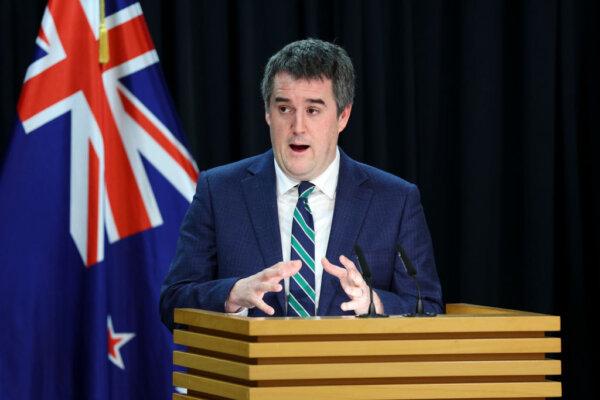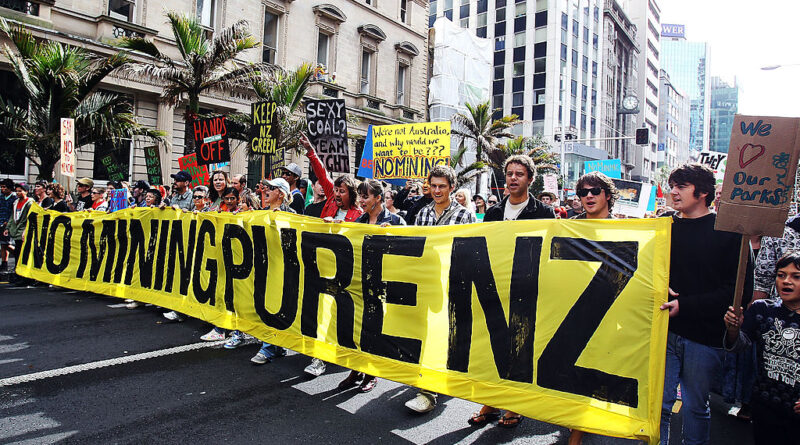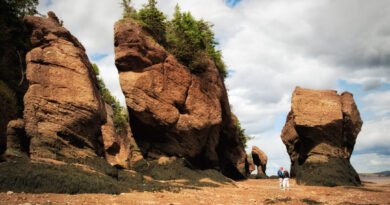New Zealand Government Expedites Approval for 149 Resource and Energy Projects, Including 2 Coal Mines
The coalition government is utilizing its contentious ‘fast track’ legislation to expedite the development of coal by bypassing lengthy environmental approvals.
After taking power in New Zealand last year, the National/ACT/NZ First coalition government introduced a “Fast Track” Bill as one of its initial legislative pieces. This bill aims to streamline the scrutiny process for new infrastructure developments deemed to be in the national interest.
The legislation includes a schedule listing projects eligible for this expedited process, and today, the government unveiled this list.
Out of 384 industry proposals submitted during the public application process, 149 have been chosen for their “significant regional or national benefits.”
Infrastructure Minister Chris Bishop asserted that the selected projects will revitalize the economy, address the housing shortage, enhance energy security, and tackle the country’s infrastructure shortfall.
“Our focus is on moving New Zealand forward and cutting through bureaucratic obstacles,” he declared during a press conference on Oct. 7. “This initiative is about bolstering employment and fostering growth.”

Minister for Infrastructure Chris Bishop speaks to media during a press conference at Parliament in Wellington, New Zealand, on Oct. 6, 2024.Hagen Hopkins/Getty Images
Regional Development Minister Shane Jones emphasized in a statement that the project selection was the result of a rigorous evaluation process. Following review by the Ministry for the Environment and an independent advisory group, the Cabinet made the final decision.
The selected projects encompass seven aquaculture and farming initiatives, 43 infrastructure undertakings, 22 renewable energy ventures, and 11 mining projects.
Industry body Straterra expressed approval of the announcement, noting the recognition of mining’s regional and national importance.
“At a time when regional manufacturing and processing plants are shutting down, mining offers crucial job opportunities and economic boost to local communities, contributing to trade balance improvements. Mining deserves inclusion on the fast-track list,” remarked Chief Executive Josie Vidal.
Striking a balance, he added, “Responsible mining in New Zealand will uphold high employment, health, safety standards, and stringent environmental requirements as currently enforced. These conditions entail fulfilling financial obligations and presenting comprehensive mine closure plans to restore mined land to its original state, if not better.
“Gold, coal, and the minerals identified in the recent draft critical minerals list are essential for our advanced, eco-friendly future. If extraction from New Zealand is viable, it should be pursued.”
On the other hand, Forest and Bird criticized the release of the list as “a setback for democracy.” The organization highlighted that the list of automatically fast-tracked projects was unveiled only today, months post-closure of public consultations. They plan to request the Parliament’s Environment Committee to postpone reporting back on the Bill until ample time is given to review the schedule.
“The omitted schedule includes ventures with severe and intricate environmental repercussions—coal mining in virgin kiwi habitats, deforestation in areas of high conservation value, and harm to oceanic zones housing critically endangered blue whales and Māui dolphins,” detailed Richard Capie, the organization’s advocacy general manager.
Nevertheless, the Environmental Defence Society (EDS) observed both positives and negatives in the announcement.
“The listed projects encompass public infrastructure, energy, and housing schemes that will help address New Zealand’s infrastructure shortage and housing deficit. EDS does not object to fast-tracking processes for essential public infrastructure and housing,” stated CEO Gary Taylor.
“Several large-scale wind and solar initiatives are included, and that is commendable. [However], some projects are situated in Significant Natural Areas, posing a dilemma between climate change and biodiversity loss.
“The roster of dubitable projects covers coal mines, open-pit gold mines encroaching on conservation lands, schemes previously rejected by independent decision-makers, significant expansions to Auckland’s ports, and numerous other threats to our natural environment.”

Participants gather in a world record attempt for the largest mass Haka at Eden Park in Auckland, New Zealand, on Sept. 29, 2024. Under the proposed Fast Track Bill, the park will be re-developed into a “world-class hybrid multi-purpose stadium” with a retractable roof and a capacity of over 50,000DJ Mills/AFP via Getty Images
He emphasized that expediting coal mines contradicts New Zealand’s international climate commitments and advocated transitioning away from fossil fuels.
“The bill, as currently formulated, almost guarantees project approvals. It lacks a proper balance between development and environmental considerations and appears to favor project applicants, raising concerns that both beneficial and detrimental projects will be sanctioned. Local communities will be sidelined,” remarked Taylor.
Labour’s acting environment spokesperson, David Parker, condemned the list, calling it a move that could harm the country’s natural environment.
“The coalition government’s decision endorses projects that could have detrimental impacts on our ecosystem. This regressive step is irresponsible and jeopardizes our clean, green reputation, essential for maintaining the premium price of New Zealand’s dairy and meat exports,” he stated.
Additionally, the projects list comprises 44 housing initiatives, facilitating the consent of up to 55,000 new homes in major growth centers and regional areas of New Zealand. Besides, the redevelopment of Auckland’s Eden Park facility is planned to transform it into a “world-class hybrid multi-purpose stadium” with a retractable roof and a seating capacity exceeding 50,000.
The timeline for transitioning selected projects from planning to commencement will vary, although Bishop anticipates a reduction in the timeline from years to months in general.





